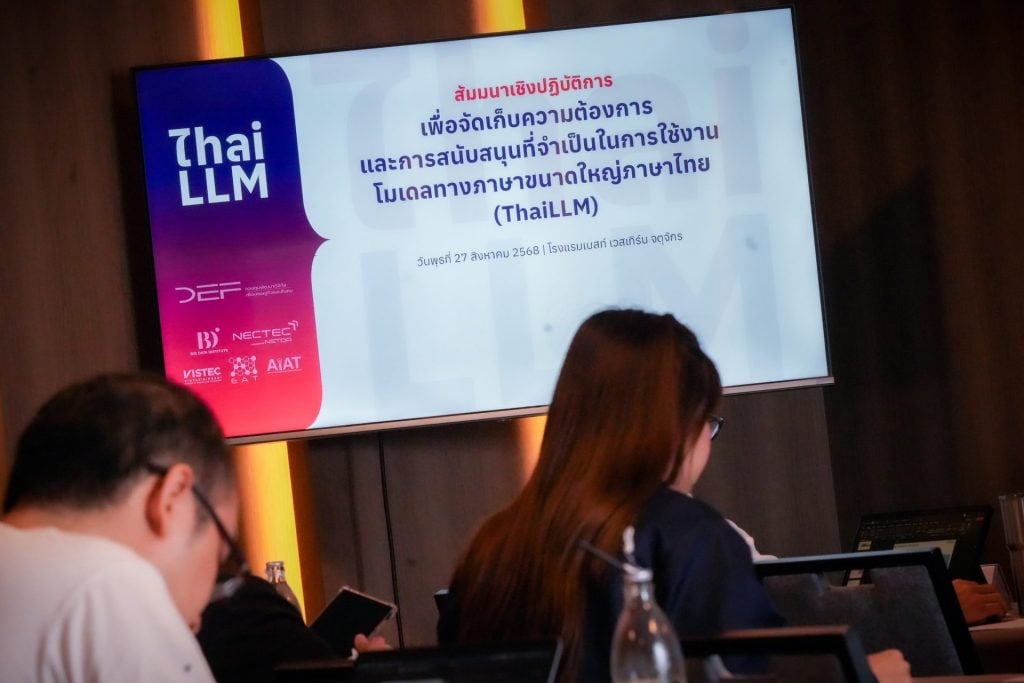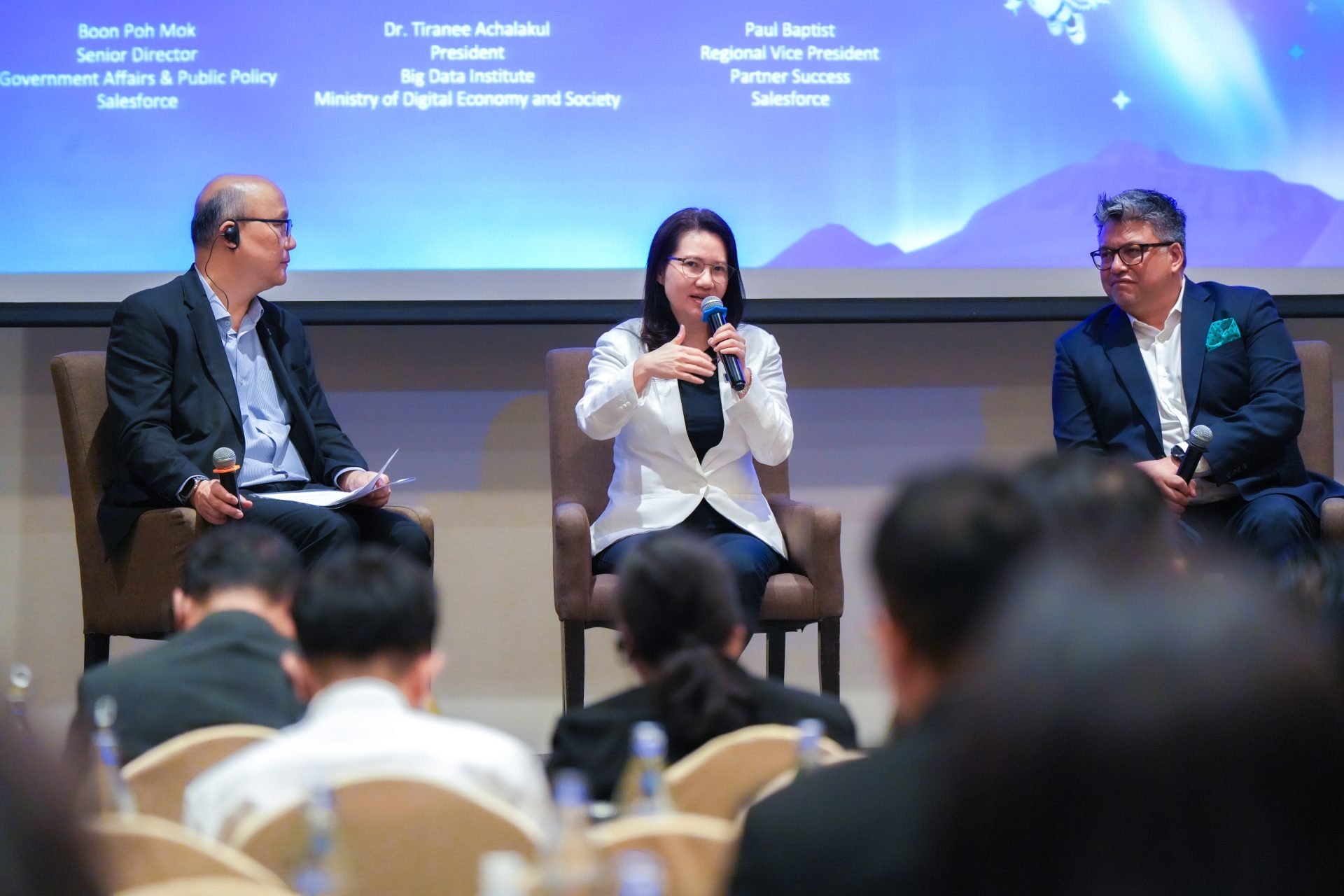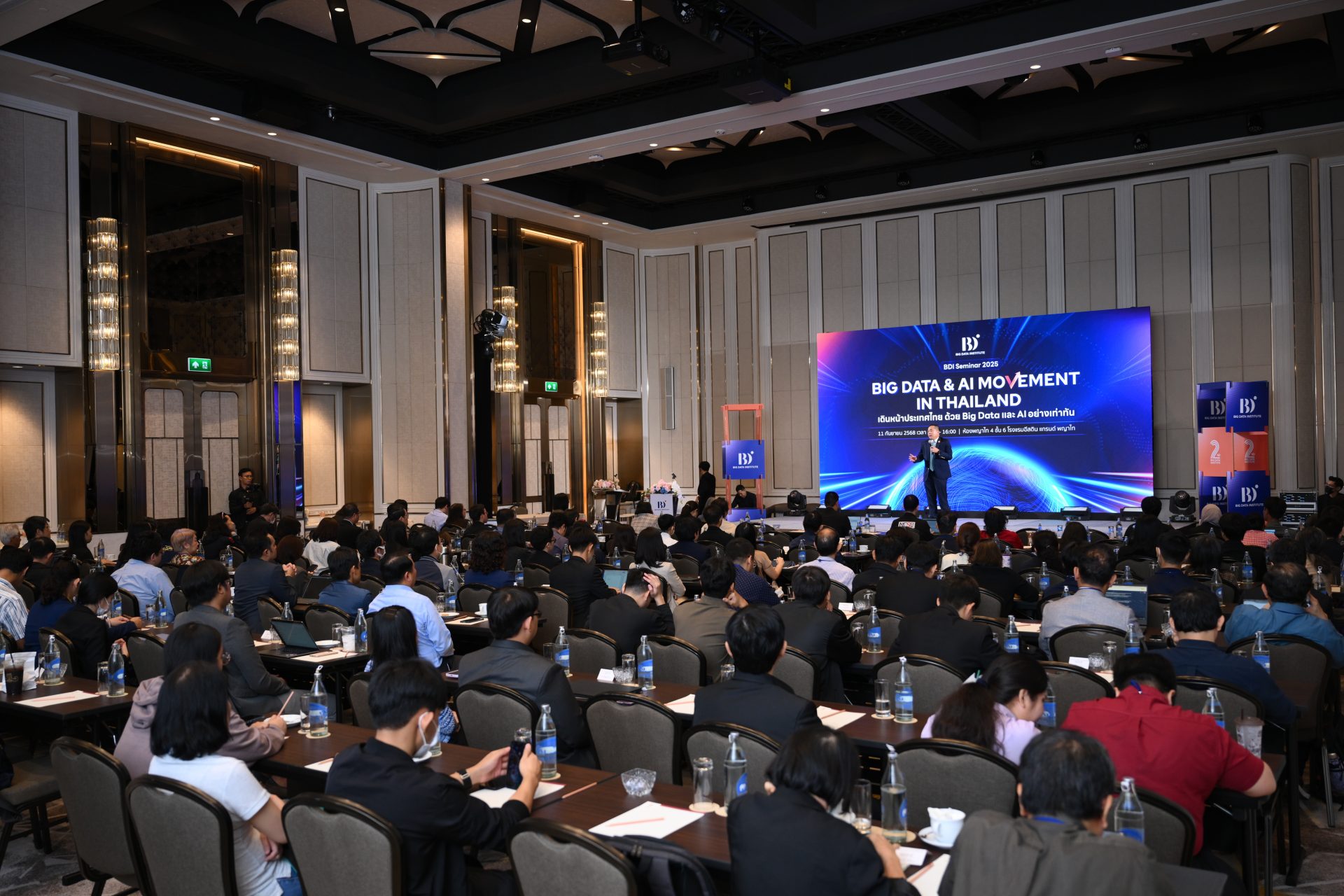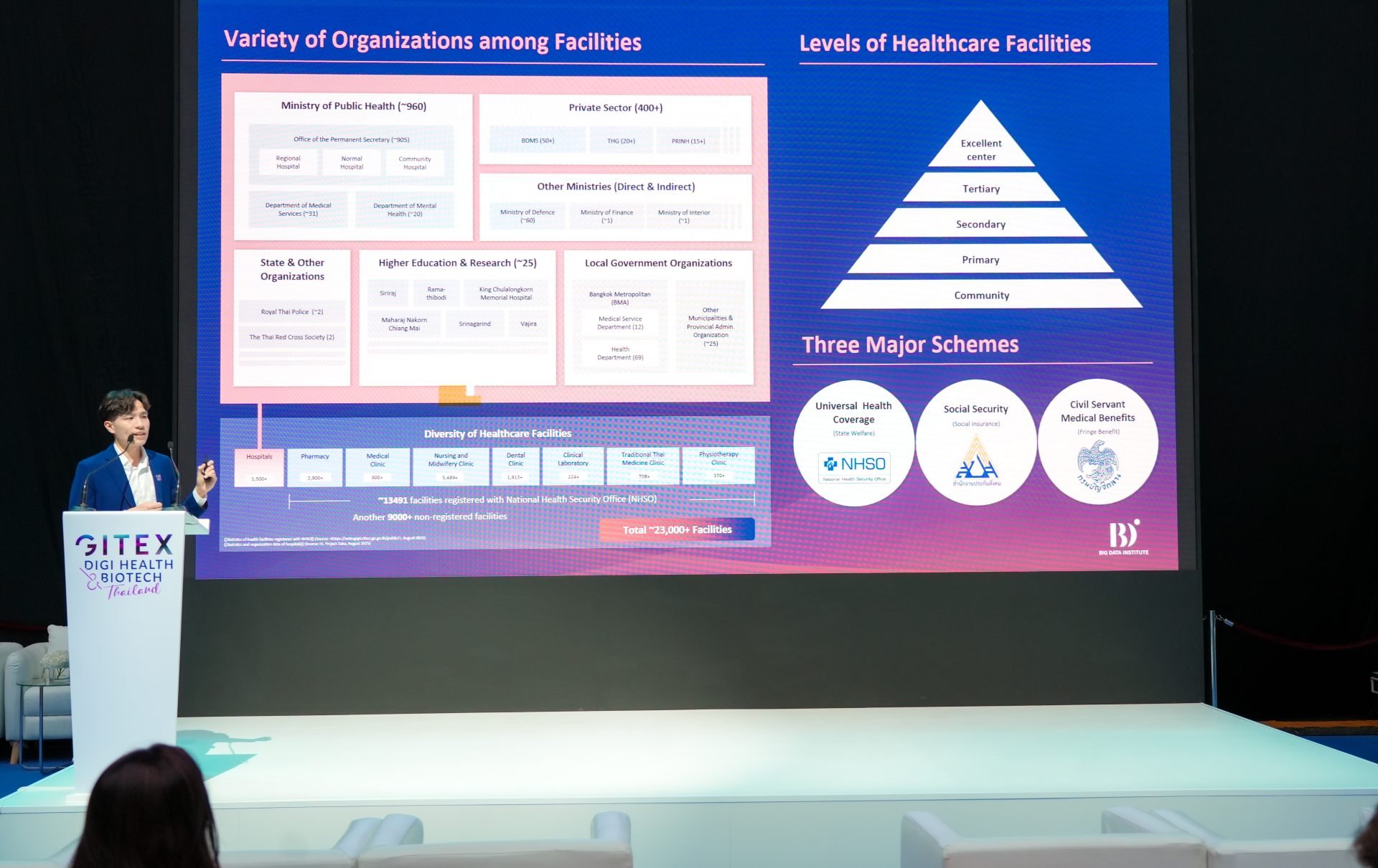27 สิงหาคม 2568, กรุงเทพฯ – สถาบันข้อมูลขนาดใหญ่ (องค์การมหาชน) หรือ BDI โดยนายปฏิภาณ ประเสริฐสม ผู้เชี่ยวชาญด้านวิทยาศาสตร์ข้อมูล และผู้จัดการโครงการ ThaiLLM กล่าวต้อนรับและแนะนำวัตถุประสงค์ของโครงการฯ ในงานสัมมนาเชิงปฏิบัติการเพื่อจัดเก็บความต้องการและการสนับสนุนที่จำเป็นในการใช้งาน โมเดลทางภาษาขนาดใหญ่ภาษาไทย (ThaiLLM) ครั้งที่ 1 ณ ห้องพาร์ควิว ชั้น 6 โรงแรมเบสท์ เวสเทิร์น จตุจักร โดยมีผู้เชี่ยวชาญวงการเทคโนโลยีทั้งจากหน่วยงานภาครัฐ ภาคเอกชน และสื่อมวลชน ร่วมระดมความคิดเห็นมากกว่า 40 แห่ง เพื่อนำความต้องการของกลุ่มผู้ใช้งานเป้าหมายและผู้ที่เกี่ยวข้อง ไปวางแผนสนับสนุนการดำเนินงานของกลุ่มภาคีเครือข่ายด้านโมเดลภาษาขนาดใหญ่ภาษาไทย (ThaiLLM Consortium) ในระยะต่อไป ทั้งนี้ ยังได้รับเกียรติจาก รศ. ดร.ธีรณี อจลากุล ผู้อำนวยการสถาบันข้อมูลขนาดใหญ่ กล่าวถึงบทบาทและความสำคัญของ ThaiLLM ก่อนเริ่มการประชุมเชิงปฏิบัติการคู่ขนานระหว่างกลุ่มผู้ให้บริการและผู้ใช้บริการโมเดล LLMs
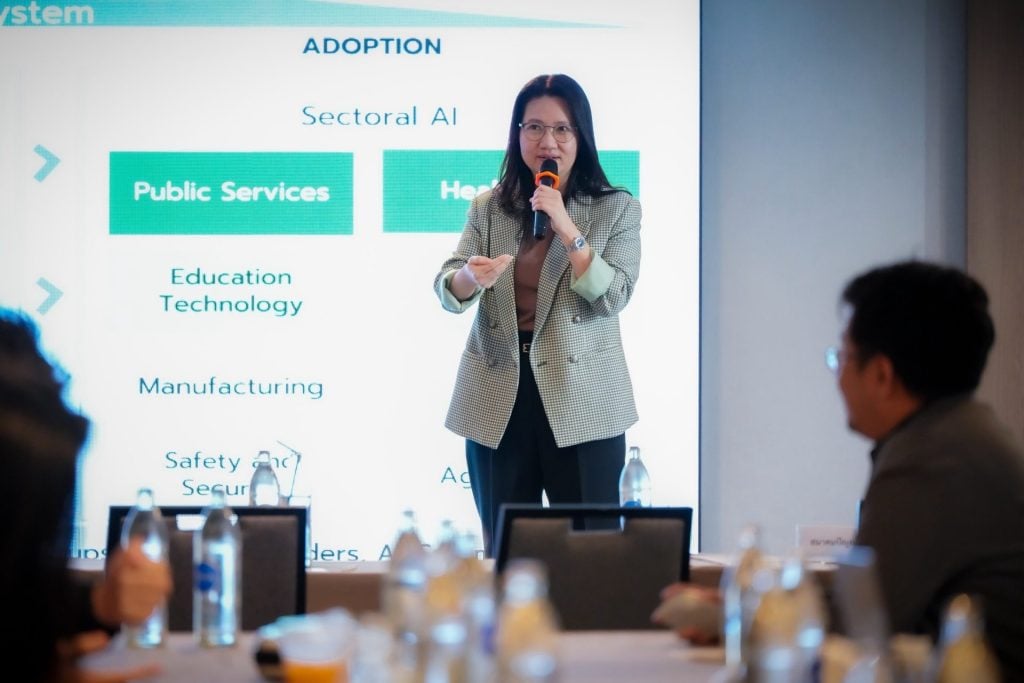
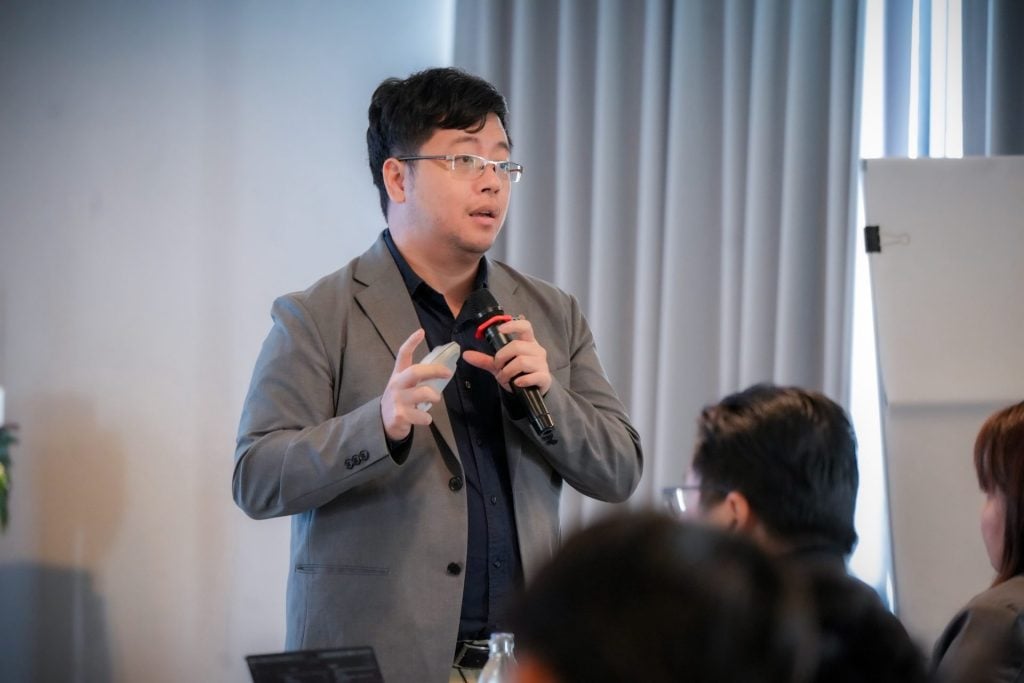
ภายในงานยังได้รับเกียรติจากภาคีเครือข่ายมาร่วมแบ่งปันข้อมูลพร้อมแลกเปลี่ยนประสบการณ์เริ่มจาก ดร.แคน อุดมเจริญชัยกิจ นักวิจัย สถาบันวิทยสิริเมธี (VISTEC) บรรยายในหัวข้อ “Domain Adaptation of LLMs” ต่อด้วย ดร.วาทยา ชุณห์วิจิตรา หัวหน้าทีมวิจัยการเข้าใจเสียงและข้อความ (STU) ศูนย์เทคโนโลยีอิเล็กทรอนิกส์และคอมพิวเตอร์แห่งชาติ (NECTEC) กับหัวข้อ “Leveraging LLMs in Government Domain: Use cases and experience sharing” และปิดท้ายด้วย ดร.กอบกฤตย์ วิริยะยุทธกร ประธานเจ้าหน้าที่บริหารบริษัท iApp Technology ในหัวข้อ “Self-hosting Opensource LLM for business: Use cases, Feasibility, Risks, and Considerations”
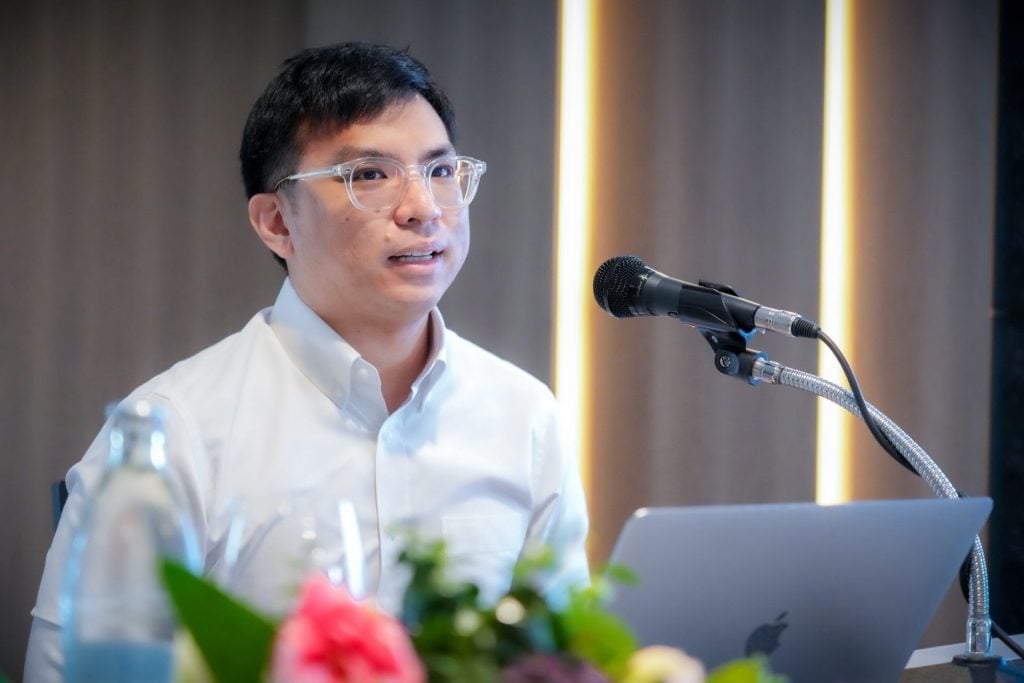


งานสัมมนาดังกล่าว สืบเนื่องจากมติที่ประชุมคณะกรรมการขับเคลื่อนแผนปฏิบัติการด้านปัญญาประดิษฐ์แห่งชาติเพื่อการพัฒนาประเทศไทย (National AI Committee) ครั้งที่ 2/2568 เมื่อวันที่ 30 กรกฎาคมที่ผ่านมา โดยมีนายประเสริฐ จันทรรวงทอง รองนายกรัฐมนตรี และรัฐมนตรีว่าการกระทรวงดิจิทัลเพื่อเศรษฐกิจและสังคม (ดีอี) เป็นประธาน มีมติเห็นชอบแนวทางการยกระดับการทำงานให้เชื่อมโยงระหว่างโครงสร้างพื้นฐานและการประยุกต์ใช้ปัญญาประดิษฐ์ (AI) โดยจัดตั้ง Center of Excellence เบื้องต้น 10 แห่ง ในสาขาต่าง ๆ เช่น การเกษตร, การท่องเที่ยว และ ThaiLLM

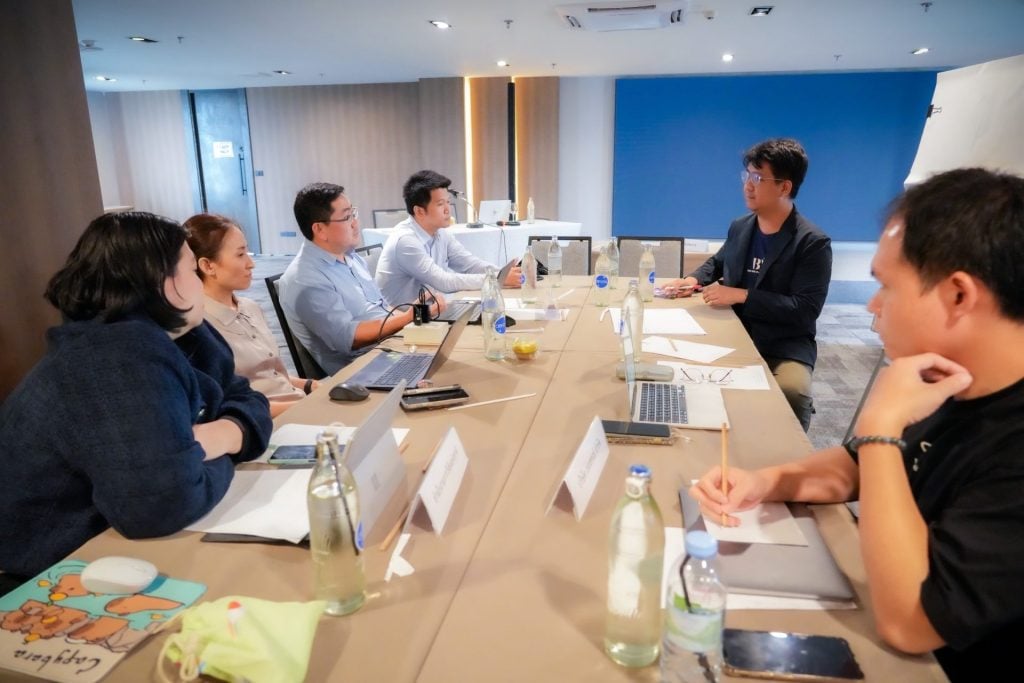

สำหรับโครงการ ThaiLLM เป็นโครงสร้างพื้นฐานปัญญาประดิษฐ์สำหรับภาษาไทย แบบ Open Source/Open License ที่ได้รับงบประมาณสนับสนุนจากกองทุนพัฒนาดิจิทัลเพื่อเศรษฐกิจและสังคม โดย BDI ร่วมมือกับ ศูนย์เทคโนโลยีอิเล็กทรอนิกส์และคอมพิวเตอร์แห่งชาติ (NECTEC) สถาบันวิทยสิริเมธี (VISTEC) สมาคมผู้ประกอบการปัญญาประดิษฐ์ประเทศไทย (AIEAT) และสมาคมปัญญาประดิษฐ์ประเทศไทย (AIAT) ซึ่ง ThaiLLM ถือเป็นจุดเริ่มต้นสำคัญของความร่วมมือกับหน่วยงานผู้นำด้าน AI ของประเทศไทย ที่รวมพลังกันพัฒนาโครงสร้างพื้นฐาน AI ภาษาไทย ที่เข้าใจบริบทของภาษาและวัฒนธรรมไทย เพื่อให้ทั้งภาครัฐ ภาคเอกชน และนักเทคโนโลยี สามารถนำไปใช้งานและต่อยอดได้อย่างกว้างขวางต่อไป
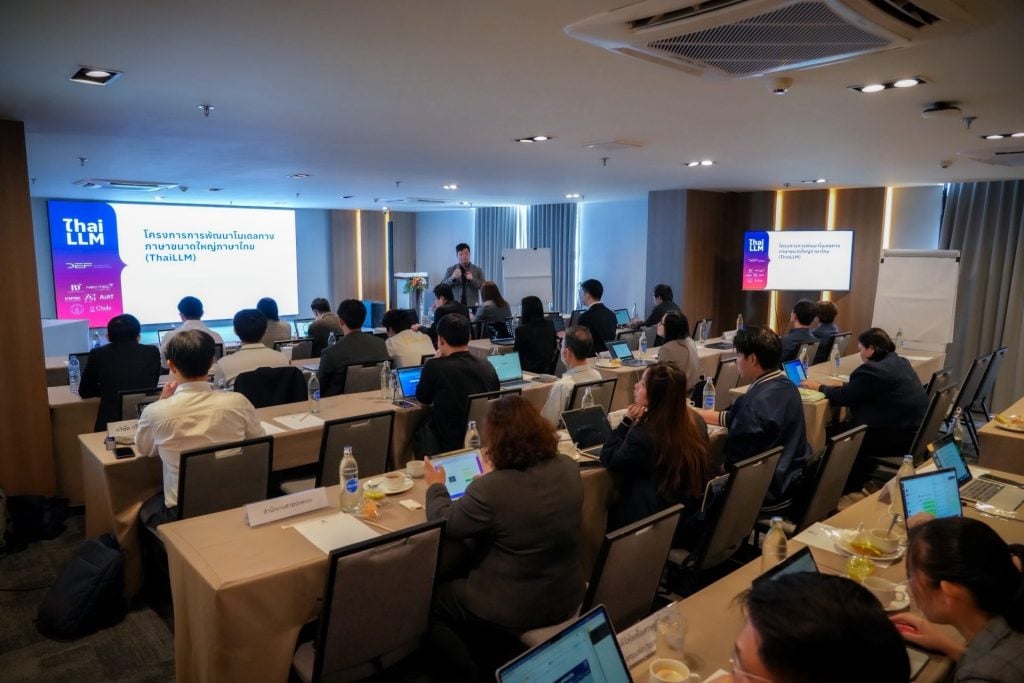


- sirirat_bdihttps://bdi.or.th/en/author/sirirat_bdi/
- sirirat_bdihttps://bdi.or.th/en/author/sirirat_bdi/
- sirirat_bdihttps://bdi.or.th/en/author/sirirat_bdi/
- sirirat_bdihttps://bdi.or.th/en/author/sirirat_bdi/


